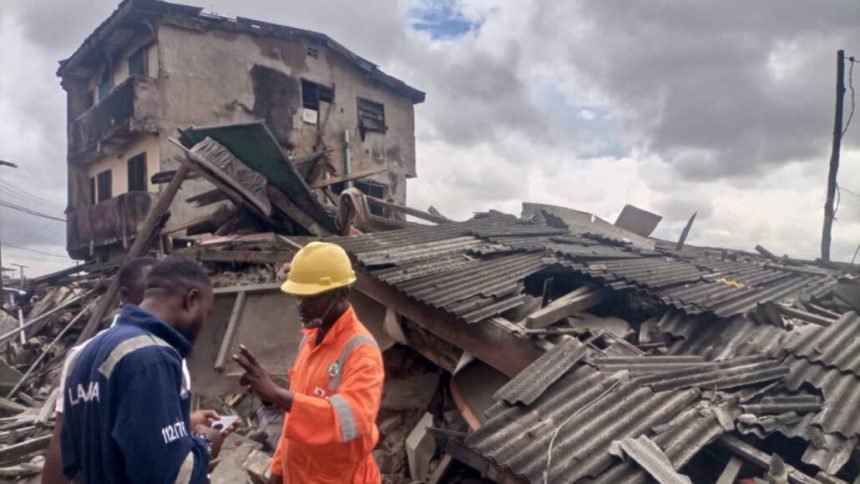The alarming frequency of building collapses across Nigeria has sparked growing concern among professionals, regulators, and the public, with experts warning of systemic failures in construction practices and weak regulatory oversight.
According to the Building Collapse Prevention Guild (BCPG), Nigeria has recorded 653 building collapse incidents, claiming 1,616 lives, with the majority of casualties reported in major cities such as Lagos, Abuja, and Port Harcourt.
In recent months, several major cities have witnessed tragic incidents that claimed dozens of lives, injured scores, and destroyed properties worth millions of naira.
Recently, Housing TV Africa reported the collapse of a three-storey building under construction near the Anambra State House of Assembly, trapping several workers and sending shockwaves through the community. Industry professionals stressed the urgent need to prioritize quality building materials despite the rising cost of construction.
Speaking exclusively to Housing Tv correspondent, Abiodun Osubu, Executive Director of the Housing Development Advocacy Network (HDAN), Barr. Festus Adebayo, emphasized the need for stronger preventive measures.
“The government must prioritize continuous training of site engineers and empower agencies to shut down unsafe sites before disasters happen,” he said.
Data from the BCPG further revealed that between 1974 and 2023, Nigeria recorded over 500 building collapse cases, with Lagos State alone accounting for more than 60 percent of incidents. Analysts warn the trend is worsening due to rapid urbanization, weak enforcement of building codes, and the use of substandard materials.
Stakeholders continue to call for stricter sanctions against contractors and developers found guilty of negligence. The Lagos State Government has also intensified demolition of illegal structures, including parts of the Lagos Trade Fair Complex, warning that non-compliance with planning and safety laws will no longer be tolerated.
Beyond enforcement, experts highlight the need for public awareness campaigns to discourage patronage of unqualified builders and unsafe construction practices.
Meanwhile, victims and families of collapse incidents continue to count their losses, as most disasters also expose the inadequacy of emergency response services.
Urban planners also caution that unless urgent steps are taken, the rising rate of building collapses could escalate into a full-blown public health and safety crisis for Nigeria.



